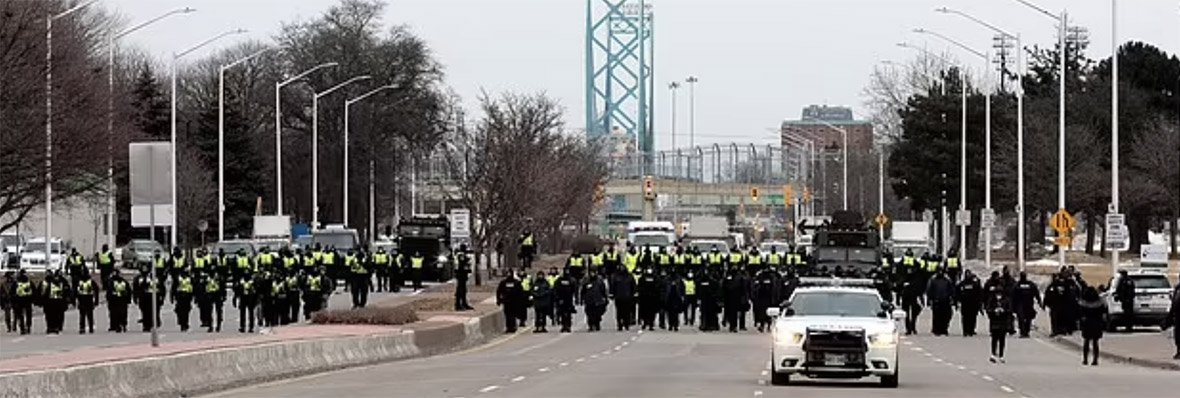The federal government says it will announce changes to COVID-19 measures at Canada’s borders this week. But will it be enough to satisfy a desperate travel industry that has been increasingly urging that regulations be eased as the latest wave of the pandemic wanes and a general sentiment takes hold that it is time to learn to live with the virus?
Simply put, the industry will expect nothing less than a removal of the federal government’s standing advisory against all non-essential international travel – a blanket measure that has been shown to significantly suppress consumer demand – as well as the requirement for pre-travel PCR testing for fully vaccinated international arrivals in Canada.
Anyone travelling within Canada by plane, passenger train or boat must be vaccinated against COVID-19 ¬– a protocol not actively opposed by the travel industry. However, the need for quarantine for travellers after post-arrival testing while they wait for results is.
It was hopeful news then on Friday when Health Minister Jean-Yves Duclos stated that the worst of the latest wave of the pandemic is now behind Canada, and that border protocols will be “tweaked” accordingly.
Chief public health officer Dr. Theresa Tam also acknowledged that due to the infectious nature of the omicron variant, it’s very difficult to stop every case at the border and prevent an infected person from transmitting the virus to someone; as such, she revealed that the travel advisory is being assessed.
However, at the same time, Duclos warned that Canada cannot simply decide to live with the virus and remove measures entirely while so many people are still dying of COVID-19. He added that more children need to be vaccinated against COVID-19, and Canada must administer more booster shots to adults.
Increasingly, tourism organizations, such as airlines and tourist boards, and sympathizers (Chambers of Commerce, doctors) have stated that current Canadian protocols are outdated and ineffective in preventing the introduction and spread of a variant that has already overwhelmed Canada. Moreover, they say they do not “follow the science” and point to many other countries, such as the UK, having dropped similar requirements.
On Friday, Air Transat flight attendants were the latest group to condemn “government inertia in its management of border mobility.”
Dominic Levasseur, president of Air Transat Flight Attendant Union, which represents 2,000 members, of whom 60% are still laid off, said, “If these measures are not eased out soon, hundreds of jobs are at risk in Montreal, Toronto and Vancouver. The government’s management of our borders must be strongly challenged.”
He added, “We ask our governments to act quickly to reduce sanitary restrictions at our borders. These excessive measures are strangling Canadian companies like Air Transat. Our demands are simple: we must facilitate the relaunch of our industry… Help us!”
This week, Levasseur, and the rest of the travel industry, will be hopeful that the government has been listening.
Meanwhile at the Ambassador Bridge

‘Freedom Convoy’ protesters were forced to end their occupation of the busiest bridge from Canada to the United States on Sunday morning after police in Windsor, Ontario, started arresting demonstrators and towing away vehicles.
Police swept through the convoy around 7am, following a standoff that began Friday evening when a Canadian judge issued a 10-day injunction making it unlawful to block Ambassador Bridge – which connects Windsor with Detroit.
Protesters in trucks, cars and vans have blocked traffic in both directions since Monday, choking the supply chain for Detroit’s carmakers.
Despite clearing the key bridge on Sunday morning, however, officials kept Ambassador Bridge closed to traffic.
Demonstrations across Canadian cities have been implemented in response to Prime Minister Justin Trudeau’s order for the country’s truckers to be vaccinated or quarantine after returning from the US.
‘Today, our national economic crisis at the Ambassador Bridge came to an end. Border crossings will reopen when it is safe to do so and I defer to police and border agencies to make that determination,’ Windsor Mayor Drew Dilkens said in a statement on Sunday.
Police forced the demonstrators to clear the bridge by stepping up their presence with more than 50 vehicles, including cruisers, buses and an armored car on Sunday. The number of protesters still at the bridge had dropped to around 45 from Saturday’s roughly 100-person turnout.
‘Enforcement is continuing in the demonstration area and there will be zero tolerance for illegal activity. The public should avoid the area,’ the Windsor Police Service tweeted on Sunday morning.
Protesters lingered in the vicinity of the bridge after their forced removal, however, gathering on sidewalks and in parking lots of local businesses.
One small group convened at a Shell gas station with a couple of men in a pickup truck who were blasting Twisted Sister’s 1984 protest anthem, ‘We’re not going to take it.’

